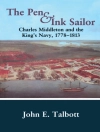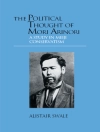In ‘Miss Lulu Bett, ‘ Zona Gale crafts a poignant exploration of societal norms and personal freedom through the lens of her protagonist, Lulu Bett. Set in the early 20th century, this novel weaves together themes of individuality and the constraints of marriage, employing a blend of realism and lyrical prose. The narrative deftly scrutinizes the roles of women within a patriarchal society, showcasing Gale’s sharp observations and her ability to probe beneath the veneer of everyday life, which resonates with the burgeoning feminist discourses of her time. Zona Gale, an influential figure in early American literature, was born in Wisconsin and often drew inspiration from her Midwestern roots. Her experiences as a woman in a predominantly male literary environment shaped her narratives, making her a pioneer in articulating the struggles of female identity. Gale’s commitment to representing the emotional and social complexities of her characters adds depth to her work, situating her as a critical voice during the Women’s Suffrage Movement and beyond. Readers will find ‘Miss Lulu Bett’ a captivating and thought-provoking narrative that challenges traditional conventions and celebrates the quest for self-identity. Gale’s masterful storytelling invites us to reflect on our own lives and the social constructs that shape them, making this novel a timeless gem in American literature.
关于作者
Zona Gale (1874–1938) was a distinguished American author and playwright, who achieved critical acclaim for her insightful portrayals of small-town life in the Midwest. Gale’s most famous work, ‘Miss Lulu Bett’ (1920), won the Pulitzer Prize for Drama in 1921 after it was adapted for the stage, making Gale the first woman to receive the prestigious award in drama. The novel explores themes of women’s independence and societal expectations in the early 20th century, offering a keen observation of human relationships within the constraints of a conservative society. Born in Portage, Wisconsin, Gale’s upbringing in the American heartland deeply influenced her literary style, imbuing her work with a sense of realism and empathy for her characters. She was a progressive voice in her time, advocating for women’s rights and social reform, which is reflected in the feminist undercurrents of her writings. Gale’s other notable works include ‘Friendship Village’ (1908) and ‘Faint Perfume’ (1923), which further emphasize her characteristic blend of regionalism and commentary on social mores. Her storytelling was often marked by a focus on personal transformation and the pursuit of self-discovery. Gale’s contribution to American literature and her role in highlighting the complexities of women’s lives in her era remain significant influences in the field of literary arts.












